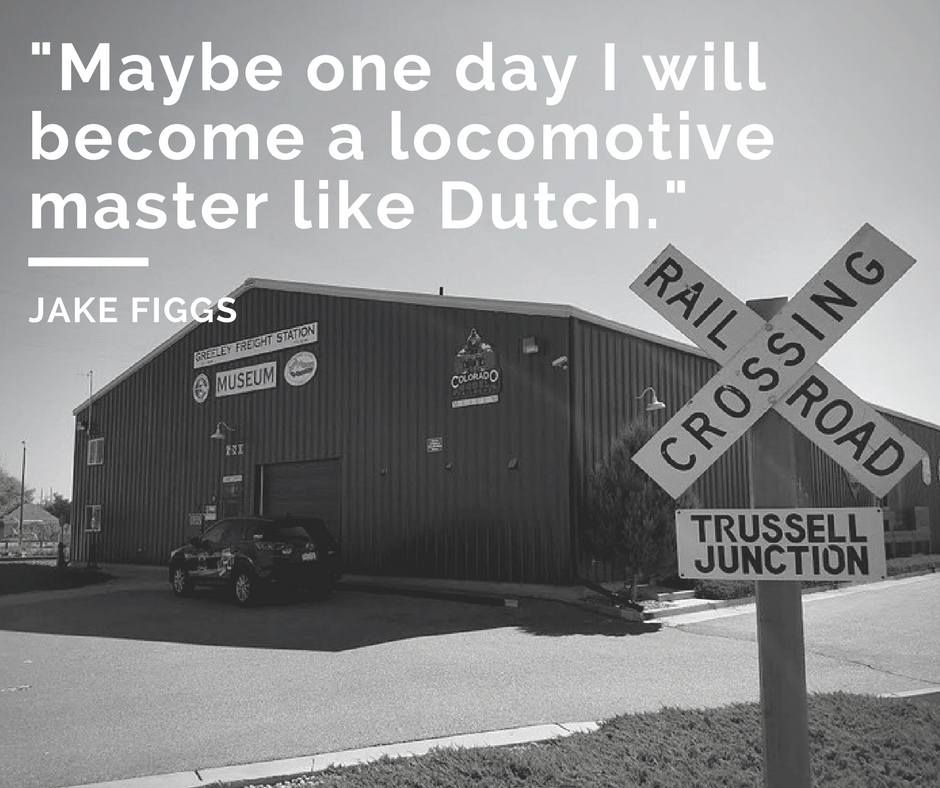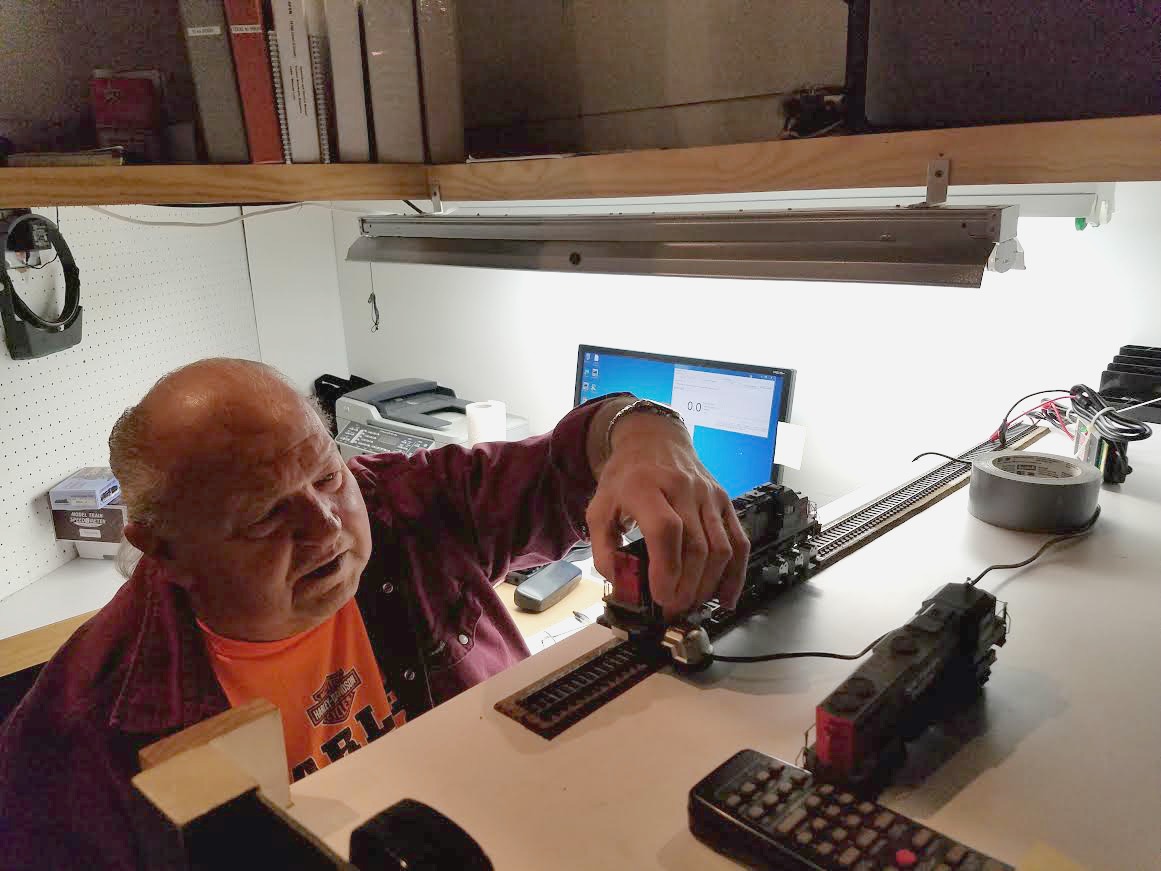
As we roll on to our second month with our Charity of the Quarter, The Colorado Model Railroad Museum, we want to take a look at the volunteers who help keep the museum running daily.
To fully appreciate what the volunteers do, we sent our marketer, Jake, to volunteer during a Monday morning volunteer session. See what he had to say about his experience:
When Is the Best Time to Volunteer for CMRM?
“I decided that I wanted to help volunteer behind the scenes so that I could get an exclusive look at what it takes to keep the museum running. Monday morning was the perfect day to experience just that as every Monday volunteers come in to clean the trains, the facility, and make sure everything is running as it should for the upcoming week. They are closed on Mondays to the public so they don’t have to interrupt visitors’ experience.
Who Will You Work With?
As I arrived, I was soon greeted by Michelle, the director of the museum, who popped her head out the bathroom door and greeted me with a huge smile and a paintbrush in hand. Even she was chipping in that morning to help upkeep the museum. Michelle's demeanor when you talk to her is nothing but kind and approachable. She asked me what I would like to do to help and I simply replied, “Put me to work. I'll do anything you need.”
So Michelle whisked me straight away to behind the model railroad tracks so she could start introducing me to the men who were volunteering that day. She decided to put me in the care of Dutch who was wearing a bright orange Harley Davidson t-shirt. He sized me up and thought that the best place to start my morning volunteer experience would be to pick up trash around the building.
What Tasks Are Needed To Be Done?
I was nothing less than pleased to start off doing this task. For one, I know how to pick up trash and there was a good chance that I could complete my first task without screwing it up. Second, we’ve had such a nice fall season that a task in the morning air was welcomed before winter comes. And third, volunteering isn’t volunteering unless you pick up some trash!

I won’t describe what kind of trash that I picked up as you may be eating as you are reading this. But once I was done scouting the perimeter of the museum for stray pieces of trash, I headed back inside for the next task.
How Are the Trains Maintained?
Dutch kindly decided to give me a little tour of the museum next. He brought me over to the children’s station to make sure Bill was up to speed with his inspections. Thomas the Train Engine and his friends were responding as needed to entertain the kids!
Then Dutch took me back behind the whole model display to show me the staging area. The staging area has many trains docked with trains being able to be sent out in opposite directions.
There I met Steve who was working on the coal train. Dutch told me that every week, the volunteers clean each locomotive to make sure it is running smoothly for the week. For the rest of the train cars, he said that they clean 2 or 3 trains a week and every train is cleaned approximately every 6 weeks.

Steve was cleaning the coal train. He had taken a paper towel and laid it across the train tracks. He then ran each train car across the paper towel several times to get the dust off the wheels. I witnessed that the paper towel used was black, dirty, and full of dust. And who knows how many train cars Steve had run along it by that point. But just for the record, every train probably had at least 80 cars attached…
Is there More Than Just Cleaning?
After being amazed by how many trains the museum had, I went back with Dutch to the Teardrop to help him re-calibrate locomotives. He had a box of about 5 locomotives that were all running a bit slow than desired. He told me that he was spending the day re-calibrating all the locomotives.

He showed me how to test the speed of the locomotives when handling the throttle. We wanted the model locomotives to pull the trains at a top speed of 60 mph. (Model scale version of 60 mph that is.) So through a long process of time consuming steps, we re-calibrated each locomotive so they would all register the same speeds when used by the main throttle, through fancy software.
Sitting with Dutch with our time consuming task, I learned that one day he was riding by the museum on his ‘bike’, motorcycle in case you forgot he was wearing his Harley Davidson t-shirt, and noticed a man outside the warehouse making some trees. He stopped to talk to the man, who was the creator of the museum. The man decided to take Dutch inside his museum and when Dutch walked in, his eyes widened like a kid on Christmas morning and instantly asked if he needed volunteers. That was 8 years ago and since then has amassed over 8,000 volunteer hours at the museum.
Final Thoughts
Michelle, the museum director, later told me that on top of the locomotives and train cars, they are continually dusting the landscape. On last count there was over 28,000 trees. That is a lot of dusting.
I would like to thank Michelle for allowing me to volunteer that morning with the guys. I especially would like to thank Dutch for showing me some of the ropes around the museum. It would be a pleasure to volunteer again with them and maybe one day I will become a locomotive master like Dutch.”
If you would like to volunteer with Dutch and the other men and women at the Colorado Model Railroad Museum, please check out their volunteer informational sheet here. If you amass over 500 of volunteer hours, you can then enter their exclusive club and be featured on their website.
On top of volunteers, the museum needs donations to keep the museum running. If you refer anyone you may know to us, Union Colony Insurance, we will donate $5 to the museum whether they purchase a policy or not. We just appreciate the referral!
Refer a friend here!
